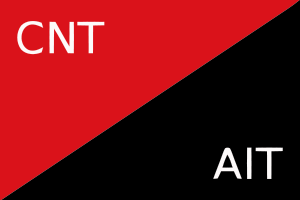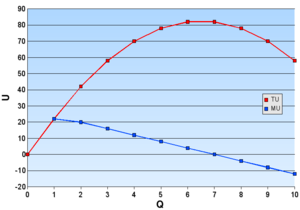An analogy meant to show how the crises of capitalism are based on structural failings of the system, rather than external meddling (ie state)
Lets take a Rock concert where there’s a considerable amount of people who wish to have a better look at the stage. Lets also assume that people are absolutely respectful of the negative freedom of others and thus will not take physical action to restrict it in any way, unless it is physical action against someone in itself.
Now a perfectly reasonable action on the part of any of these people will be to bring a box with him in order to stand on it and thus get a better view of the stage. Of course others will be inconvenienced by the sudden worsening of their line of sight, while others will become envious of this better position instead.
Again, for both of these cases, a perfectly rational response would be to get their own box to stand on. Eventually most people will have acquired their own and thus the end result would be the same as in the original case.
Now consider that it is possible to stack these boxes on each other and increase one’s height once more. You immediately have a height race where people are trying to outstack each other in order to get a better view.
However, there are two catches:
- The person using these boxes needs to carry them himself and they can get quite heavy eventually.
- The higher one’s stack, the more precarious it becomes, increasing the risk that one might fall and more than likely take others with them.
So now we have a situation where through perfectly rational individual actions, we’ve reached the following situation:
First of all, the strongest will be able to carry more boxes and thus oligopolize the view. Eventually the people below and behind will be fed up and leave the concert. Once enough people do this, the general fun of the concert decreases (a concert with 20 people is not much fun I’ll tell you – unless it’s planned that way) and new people find it impossible to join since they have to bring a large stack of boxes from the start.
Second, as people start carrying more boxes, you end up in a very delicate situation where one person slipping might trigger a chain reaction of catastrophic proportions, both because of the height of the fall but also because it’s easier to fall. Once of course you have most people on the ground screaming in pain, the concert will stop and the new one will have to wait until most have recovered from their injuries.
So we have a classic game theory situation, where individual rational actions for the short term gain have an irrational collective result. This all starts of course from the ideological position that no physical action must be taken against people who start this height race.
This example of course is not random. Specifically it is made to provide an analogy for the capitalist crises. Consider that the concert as a whole represents the economy. The people are the individual companies and the boxes represent investments in capital.
The more and faster a company invests, the bigger the short-term advantage it has until the rest invariably catch up. The rising investment in turn creates the possibility for a crisis of overproduction as eventually there is so much supply that it cannot be matches by demand (especially if wages stay low, but even if not). Once this happens the whole system grinds to a halt, totters and collapses under its own weight once the profits cannot be realized anymore.
In our analogy this is the phase where a few people finally lose their balance. Depending on the precariousness of the concert area, this might mean that a whole section collapses, or that the entire thing does. And once that happens a few people can get some extra boxes on the cheap from those who will no be using them anymore.
The first situation on the other hand is simply the tendency of the system to end up in oligopoly, from which it’s almost impossible to get out of, as new players need to start with a lot of boxes instead of slowly building up. This again exaberates the situation as it takes fewer people to fall and initiate a collapse (They’ve become now “too big to fail”).
What is this analogy meant to show? Nothing more than the structural problem of any system based entirely on rational individualistic self-interest (ie greed).
It is also meant to give an example of why crises of capitalism are systematic and not caused by external factors such as the state modifying the money or credit supply. As you can see, in the analogy these is no need for an external party (a state) in order to have a disaster, but even if we were to add one, the result would be the same.
Lets assume for the sake of this exercise that the state (or in our case, the concert organizers) controls how fast or slow people can get new boxes (eg, they help you carry them).
Would this make any difference overall? Of course not.The drive to the top would still be the same but it would proceed at a faster or slower pace. However neoclassical economists would have you believe that because it is not “natural”, some people overextend, causing them to lose their balance.
But this is not the case of the fall, although it might allow it to come sooner. You simply cannot keep building an edifice indefinitely, no matter how slowly, especially since the same tendency is the one that shrinks its base (as people would leave disappointed in our example). In the same sense, Capitalism is impossible to be in a perpetual boom situation. Not only does it eventually have to collapse, but it will do so with a ferocity that will be analogous to the intensity and length of the previous boom period.
Of course anyone can see that there is another solution to this problem, one that avoids and endless series of builds and crashes, boom and busts. it is the simple solution of not allowing any individual person to start bringing boxes to the concert due to the long-term repercursions. Doing so would avoid an irrational collective decision.
Needless to say that this would require (the threat of) physical force against the ones who ignore the collective will in favour of their own self-interest. While this is obviously for the best, some ideologues will cry bloody murder and claim that such actions either restrict negative freedom (which they should do. Because.) or that they will necessarily lead to authoritarianism. But of course this is an absurd proposition for there is nothing authoritarian about not wanting one or two greedy bastards to ruin it for everyone. Concerts everywhere seem to back this up.
Neither would this mean that everyone would have to suffer an inferior concert experience. Rather the solution would lie in rational collective interest, where instead of each person acting alone, all cooperate (ie pool their resources) and democratically decide on what the best thing would be, to benefit all equally.

![Reblog this post [with Zemanta]](https://i0.wp.com/img.zemanta.com/reblog_e.png?w=980)









